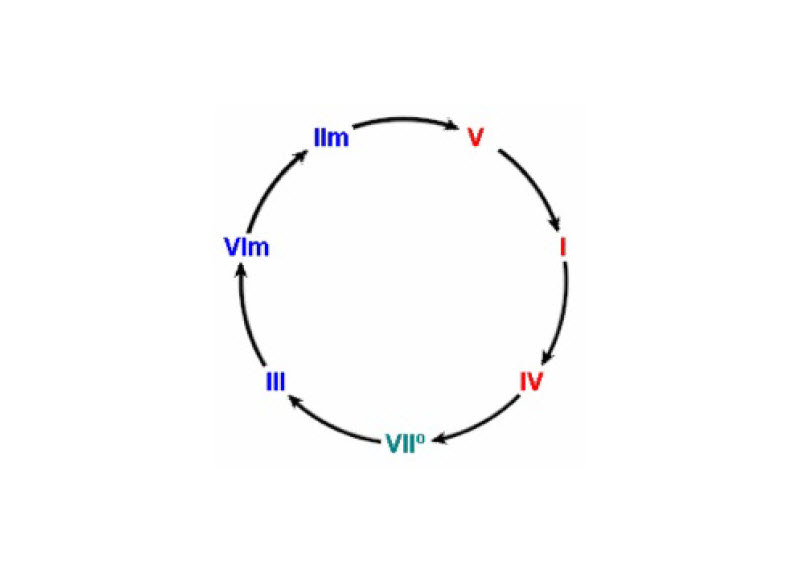You Are Reading the First 6 FREE Chapters (470 pages)
III - VIm vs IIIm - VIm; For Example, E - Am vs Em - Am
The chord progression in the circular harmonic scale therefore becomes III – VIm (instead of IIIm – VIm). Now the chord change has a strong directional quality (Figure 52).

FIGURE 52: Circular Harmonic Scale with III in Place of IIIm
In the key of C major / A minor, when you play the chord changes, you can easily sense that the chord progression E – Am has much stronger directed quality than Em – Am. At this stage, the emerging circular harmonic scale has parted company with the circle progression.
To generalize, any descending fifth progression of two chords must have a major triad as its first chord in order to impart strong directed motion that terminates in a feeling of resolution. The second chord may be either a major or minor triad.
For instance, if you want to convey a feeling of strong directed motion to the chord progression IIm – V (e.g., Dm – G), you have to change the IIm to II, converting the progression to II – V (e.g., D – G).

